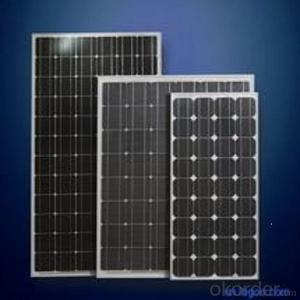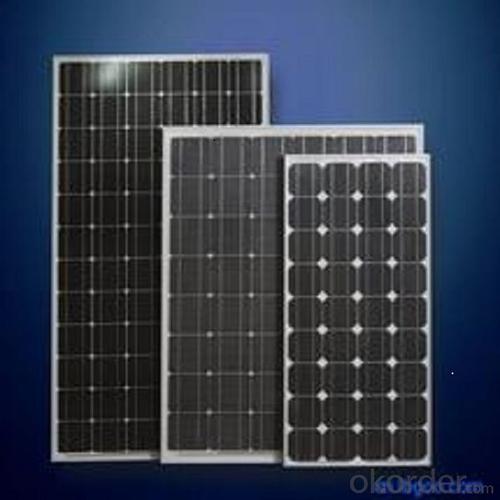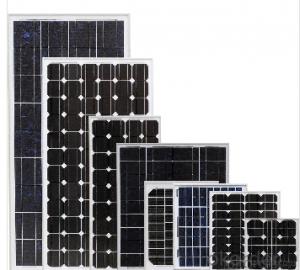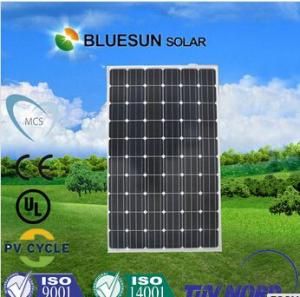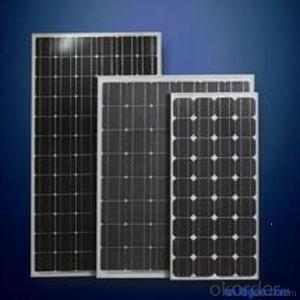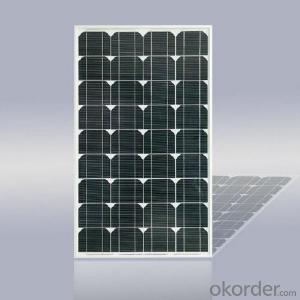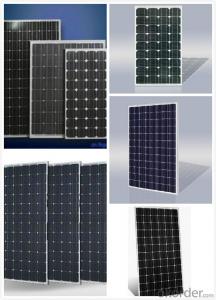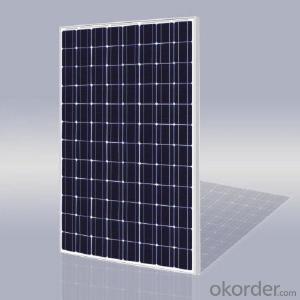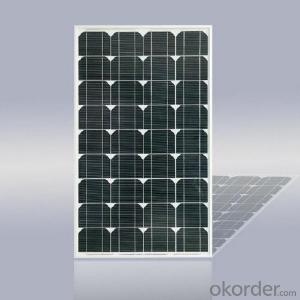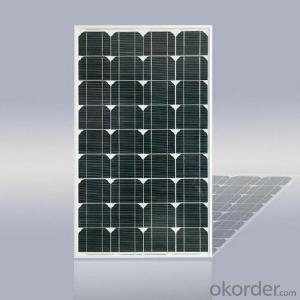Sanyo Solar Panels - High Quality 260W Solar Panel Modules
- Loading Port:
- Shanghai
- Payment Terms:
- TT OR LC
- Min Order Qty:
- 260000 watt
- Supply Capability:
- 26000 watt/month
OKorder Service Pledge
OKorder Financial Service
You Might Also Like
Specification
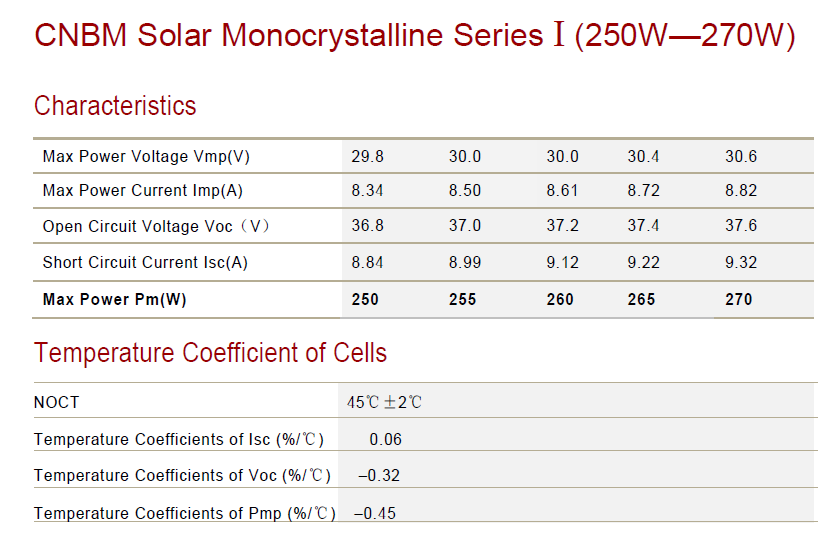
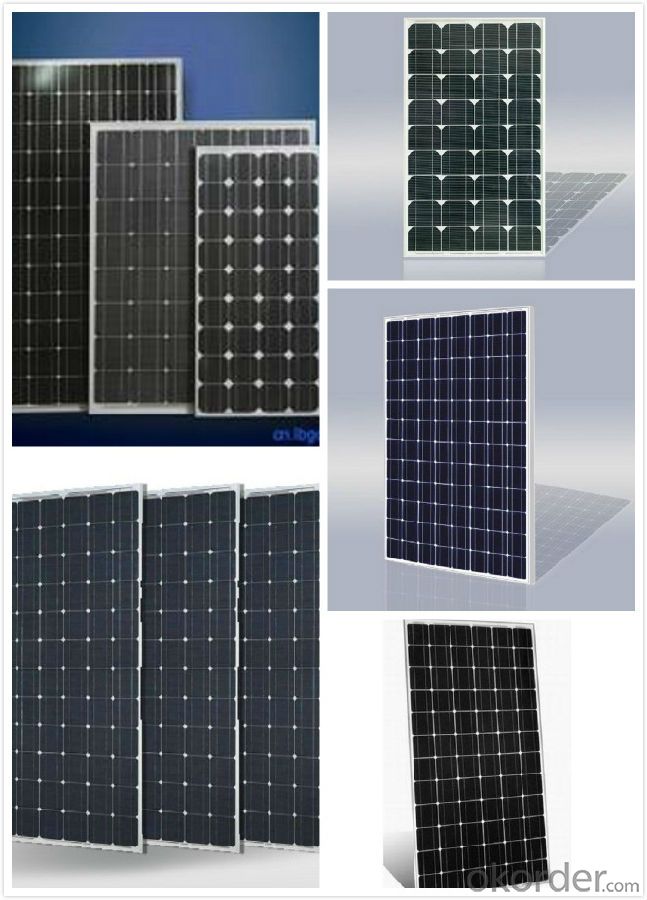
Product Description:
This installation Manual contains essential information for the electrical and mechanical installation that your must know before installing CUSTOMER PV modules. This also contains safety information you need to be familiar with .All the information described in this manual are the intellectual property of CNBM and based on the technologies and experiences that have been acquired and accumulated in the long history of CUSTOMER. This document does not constitute a warranty, expressed or implied.
CUSTOMER does not assume responsibility and expressly disclaims liability for loss, damage, or expense arising out of in anyway connected with installation, operation, use or maintenance of the PV modules. No responsibility is assumed by CUSTOMER for any infringement of patents or other rights of third parties that may result from use of PV module.
CUSTOMER reserves the right to make changes to the product, specifications or installation manual without prior notice.
Solar panel working process
In addition to being the ultimate source of all life on earth, the sun is an infinitely renewable, completely pollution-free source of electricity. Instead of burning fossil fuels dug up from the ground in a big power plant – a very 19th century, industrial age approach, when you think about it – solar panels convert sunlight directly into electricity, with no harmful emissions.
The basic unit of a solar panel is a solar cell, which usually consists of one or two layers of silicon-based semiconductor wafers. When struck by the photons in sunlight, the solar cell generates an electrical charge due to the "photovoltaic effect" – which is a pretty good name, since it produces voltage from photons. The flow of these electrons moves in a steady electrical current from one side of the cell to the other.
Dozens of these PV cells are packaged together into solar modules, which in turn are packaged into solar panels that are mounted on a rooftop and arranged to maximize their hours of exposure to direct sunlight. Because the electricity generated by all those solar cells is direct current (DC), it is then sent to an inverter that transforms the power into the same alternating current (AC) used by the appliances in your home and the local utility electricity distribution grid. Increasingly, these inverters are getting "smart," providing data monitoring for solar installation performance and other grid integration services.
FAQ
We have organized several common questions for our clients,may help you sincerely:
③Can you provide the peripheral products of the solar panels, such as the battery, controller, and inverter? If so, can you tell me how do they match each other?
Yes, we can, we have two companies for solar region, one is CNBM International, the other is CNBM engineering Co.
We can provide you not only the solar module but also the off grid solar system, we can also provide you service with on grid plant.
④What is your warranty system?
Our product performance guarantees for 25 years
• 12 years guarantee for workmanship
• Timeliness of delivery
• Quality Products certified (TÜV, UL, CE, ISO)
⑤How do you pack your products?
We have rich experience on how to pack the panels to make sure the safety on shipment when it arrives at the destination.
- Q: this solar panel i saw was for 500 dollars(i get a 25% discount)and i was curious will they produce electricity? or just heat?what do they do?is it a good investment?here is a link to the one i would like, no reviews but it looks new to the site.
- This is a photovoltaic panel...it produces electricity from incident solar radiation. Solar thermal panels produce heat, and they are usually assists for hot water heating systems. Solar thermal panels have piping in them instead of semiconductor cells like photovoltaics do.
- Q: How much money can you save by using solar panels?
- The amount of money you can save by using solar panels depends on various factors such as your energy consumption, the size of your solar panel system, and the cost of electricity in your area. On average, homeowners can save anywhere from 40% to 70% on their electricity bills by switching to solar panels. However, it's important to consult with a solar energy professional to get an accurate estimate based on your specific circumstances.
- Q: i check the diodes in the backside of solar panels it reads out to be 0.433 each give me the same result but i was amazed when i check out the last two one which on clamp meter screen give me ''0L'' what this means? is that diode have malfunctions??is this reasons that the output of solar has been decreased?
- First of all, make sure that you are taking readings in the dark (with the solar panel indoors and covered). 0.433 is a reasonable forward voltage for a Schottky diode. Ideally, it diode should read open one way (possibly OL for your meter), and 0.4 the other way. If it's reading OL both ways, the diode is bad. You can either unsolder it or cut it out and verify that it is bad.
- Q: I am moving to Hawaii and the house we are living in has independent electricity. (solar panels and gas powered generators.)
- The system in the Hawaiian house has solar panels that charge a battery bank. If the sun doesn't shine enough, the generator will kick on and provide the extra power needed. An inverter converts the DC voltage stored in the batteries to AC power that you plug into a wall outlet to use. Depending on the inverter, it should be exactly the same as the AC you buy from the electric company now, so anything that you currently plug in to use will work. The exception is if they are using an inexpensive modified sine wave inverter, that doesn't generate as clean power as a pure sine wave inverter. Some delicate electronics may have trouble running on it. You may want to ask the house owners which type of inverter it is. If they don't know, ask them the model and you can easily look it up.
- Q: Do they really save energy? Cut or almost eliminate your electricity bill, if so, how much?Do they have a reserve unit to save electricity that I don't use, to use when the sun is not out?Can it produce enough electricity to cool a house and keep lights and appliances runningLastly, how much are the panels are running for.
- It Can produce enough energy to run fans and yes keep the house cool. And if you also want to make one try it out. Good luck and save energy
- Q: How much candle lights is required to operate a 205 watt solar panel?
- That's hard to tell. A solar panel produces somewhere between 7 and 0W per square foot under sunlight exposure. You should calculate the light intensity of sunlight, and then calculate the light intensity of a candle (You'll have to look that up in some physics book or the internet) and then just multiply the number of candles until you match the intensity of sunlight. Realistically, you would need so many candles that you wouldn't be able to fit them in front of the solar panels, assuming you don't end up with a huge fireball.
- Q: Can solar panels be installed on a remote island or location?
- Yes, solar panels can be installed on a remote island or location. Solar panels require sunlight to generate electricity, so as long as there is adequate sunlight in the area, they can be installed. Remote islands or locations often benefit from solar panel installations as they provide a clean and renewable source of energy without the need for extensive infrastructure or reliance on fossil fuels.
- Q: Are solar panels fire hazards?
- Solar panels are generally safe and do not pose a significant fire hazard. However, like any electrical system, there is a small risk of fire if there are installation errors, damaged wiring, or improper maintenance. Proper installation and regular inspection can minimize these risks and ensure the safe use of solar panels.
- Q: Can solar panels be installed on data centers or IT facilities?
- Yes, solar panels can be installed on data centers or IT facilities. In fact, many data centers and IT facilities are increasingly adopting solar energy as a sustainable and cost-effective power source. Solar panels can be installed on rooftops or in open areas surrounding the facility to generate clean electricity and reduce their reliance on traditional grid power.
- Q: My solar panel is 24long..It is set at 45deg..the arms are 8quot;long to achieve that angle for winter. I need to get to 7deg for summer..how long will the new arms need to be?..in layman's terms please...thx
- You did not give the details of how the legs are attached to the panel. I did some calculations on my right triangle analysis application. Based on an assumption that the legs are vertical and attached to the bottom of the panel top, i calculated the legs must be 6.97 inches long. This compares favorably with the 8 inches you quoted. t If my assumption is true, the leg length for a 7 degree angle is 2.925 inches. The configuration, if my assumption is correct, will be a right triangle. The hypotenuse (longest leg of the triangle) is the panel length and the vertical legs are the supports. If my assumption is incorrect, edit your question to detail the support /panel configuration. TexMav
Send your message to us
Sanyo Solar Panels - High Quality 260W Solar Panel Modules
- Loading Port:
- Shanghai
- Payment Terms:
- TT OR LC
- Min Order Qty:
- 260000 watt
- Supply Capability:
- 26000 watt/month
OKorder Service Pledge
OKorder Financial Service
Similar products
Hot products
Hot Searches
Related keywords
